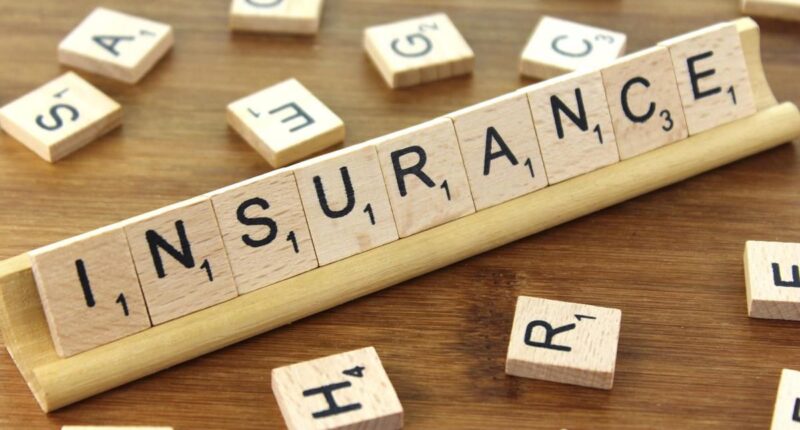What Are The 7 Types of Insurance? The Most Common Types of Life Insurance – Property insurance, marine insurance, fire insurance, liability insurance, and guarantee insurance are all types of insurance.
What Is Life Insurance?
A policy owner and an insurer enter into a contract for life insurance. In exchange for the premiums paid by the policyholder during their lifetime, a life insurance policy assures the insurer pays a sum of money to named beneficiaries when the insured dies.
The life insurance application must accurately state the insured’s past and current medical issues, as well as high-risk behaviors, in order for the contract to be enforceable.
KEY TAKEAWAYS
- When the insured dies, life insurance is a legally enforceable contract that provides a death benefit to the policy owner.
- To keep a life insurance policy active, the policyholder must either pay a one-time premium or pay continuous premiums over time.
- The policy’s named beneficiaries will receive the policy’s face value, or death benefit when the insured passes away.
- Term life insurance policies last for a set number of years and then expire. Permanent life insurance policies last until the policyholder dies stops paying payments or surrenders the policy.
- A life insurance policy’s financial strength is only as good as the firm that issues it. If the issuer is unable to pay, state guarantee funds may be able to help.
What Are The 7 Types of Insurance? The Most Common Types of Life Insurance

Below Are The 7 Types of Insurance Business are;
- Life Insurance or Personal Insurance.
- Property Insurance.
- Marine Insurance.
- Fire Insurance.
- Liability Insurance.
- Guarantee Insurance.
- Social Insurance.
Life Insurance
Life insurance is distinct from other types of insurance in that the subject matter of the insurance is a human being’s life.
At the time of death or the end of a specified period, the insurer will pay the fixed amount of insurance.
Every single person is required to get insurance.
This insurance protects the family in the event of premature death or provides a sufficient amount in old age when earning capacities are limited.
Payment is made under personal insurance at the time of the accident.
The insurance is not only a protection but is a sort of investment because a certain sum is returnable to the insured at the death or the expiry of a period.
General Insurance
General insurance includes Property Insurance, Liability Insurance, and Other Forms of Insurance.
Motor, Theft, Fidelity, and Machine Insurances include the extent of liability insurance to a certain extent.
The strictest form of liability insurance is fidelity insurance, whereby the insurer compensates the loss to the insured when he is under the liability of payment to the third party.
Property Insurance
Under the property insurance property of person/persons are insured against a certain specified risk. The risk may be fire or marine perils, theft of property or goods damage to property at the accident.
Marine Insurance
Marine insurance provides protection against the loss of marine perils.
The marine perils are; collision with a rock or ship, attacks by enemies, fire, and captured by pirates, etc. these perils cause damage, destruction or disappearance of the ship and cargo, and non-payment of freight.
So, marine insurance insures ships (Hull), cargo, and freight.
Previously only certain nominal risks were insured but now the scope of marine insurance had been divided into two parts; Ocean Marine Insurance and Inland Marine Insurance.
The former insures only the marine perils while the latter covers inland perils which may arise with the delivery of cargo (gods) from the go-down of the insured and may extend up to the receipt of the cargo by the buyer (importer) at his go down.
Fire Insurance
Fire Insurance covers the risk of fire.
In the absence of fire insurance, the fire waste will increase not only to the individual but to the society as well.
With the help of fire insurance, the losses arising due to fire are compensated and society is not losing much.
The individual is preferred from such losses and his property or business or industry will remain approximately in the same position in which it was before the loss.
Fire insurance does not protect only losses but it provides certain consequential losses also war risk, turmoil, riots, etc. can be insured under this insurance, too.
Liability Insurance
General Insurance also includes liability insurance whereby the insured is liable to pay the damage of property or to compensate for the loss of persona; injury or death.
This insurance is seen in the form of fidelity insurance, automobile insurance, machine insurance, etc.
Social Insurance
Social insurance is to provide protection to the weaker sections of society who are unable to pay the premium for adequate insurance.
Pension plans, disability benefits, unemployment benefits, sickness insurance, and industrial insurance are the various forms of social insurance.
Insurance can be classified into 4 categories from the risk point of view.
Personal Insurance
Personal insurance includes insurance of human life which may suffer a loss due to death, accident, and disease
Therefore, personal insurance is further sub-classified into life insurance, personal accident insurance, and health insurance.
Property Insurance
The property of an individual and of the society is insured against loss of fire and marine perils, the crop is insured against an unexpected decline in deduction, unexpected death of the animals engaged in business, break-down of machines, and theft of the property and goods.
Guarantee Insurance
The guarantee insurance covers the loss arising due to dishonesty, disappearance, and disloyalty of the employees or second party. The party must be a party to the contract.
His failure causes loss to the first party.
For example, in export insurance, the insurer will compensate the loss at the failure of the importers to pay the amount of debt.
Other Forms of Insurance
Besides the property and liability insurances, there are other insurances that are included in general insurance.
Examples of such insurances are export-credit insurances, State employees’ insurance, etc. whereby the insurer guarantees to pay a certain amount at certain events.
This insurance is extending rapidly these days.
Miscellaneous Insurance
The property, goods, machines, Furniture, automobiles, valuable articles, etc. can be insured against the damage or destruction due to accident or disappearance due to theft.
There are different forms of insurances for each type of the said property whereby not only property insurance exists but liability insurance and personal injuries are also the insurer.









